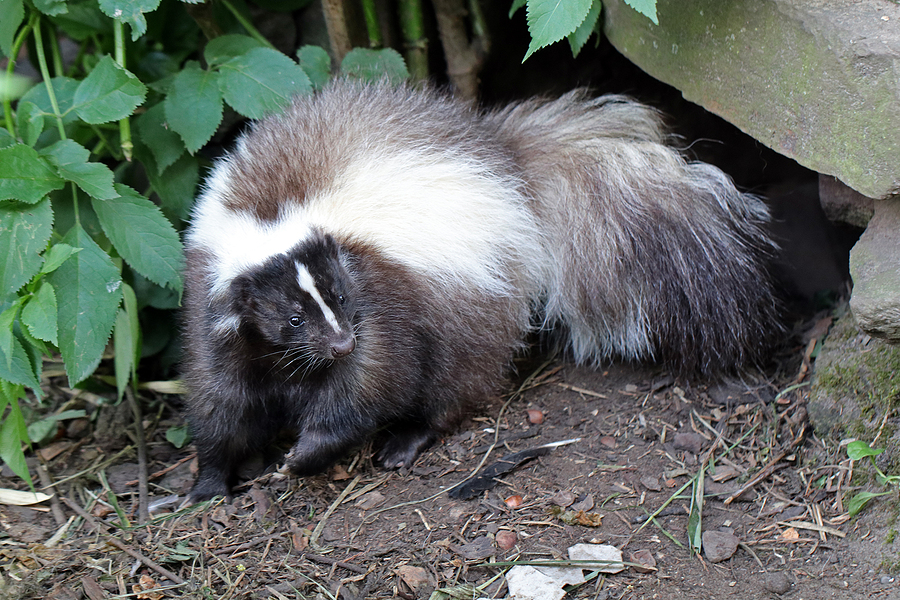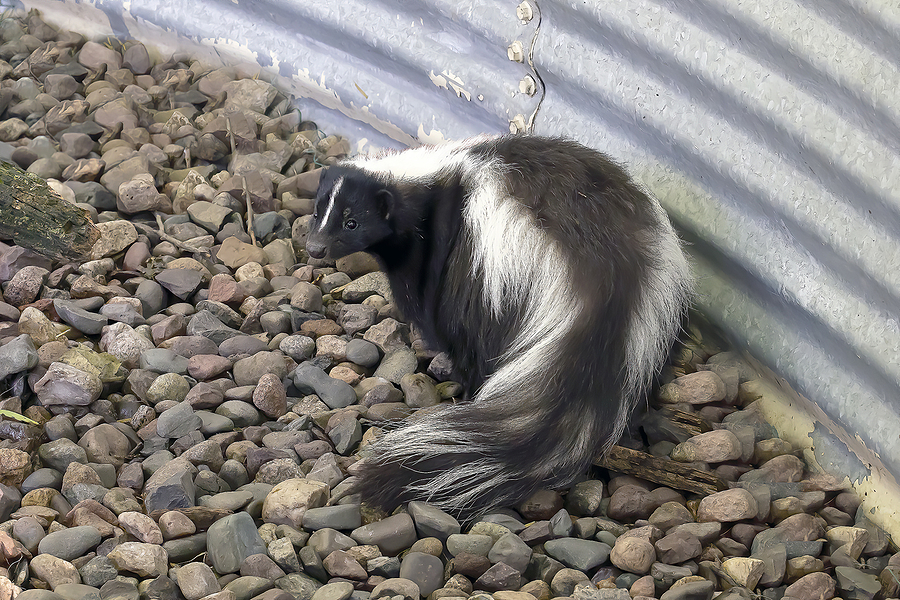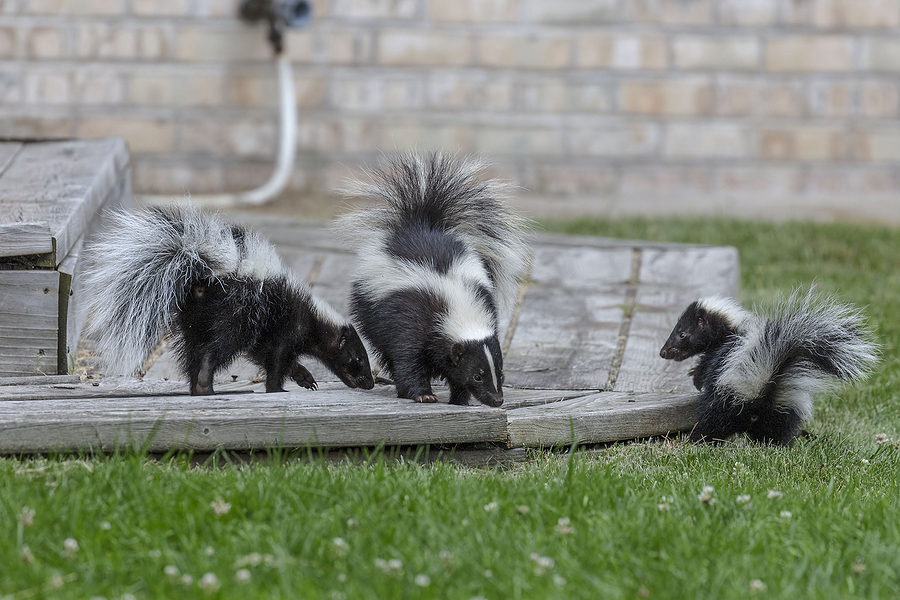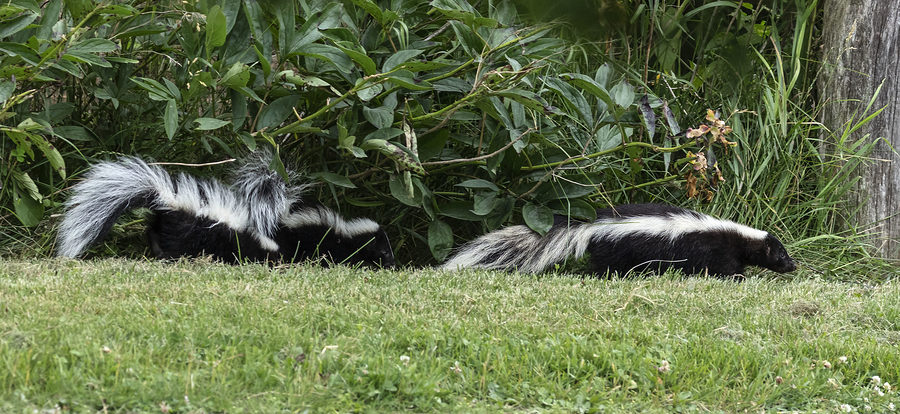Dealing with an unwanted skunk can be a daunting task that leaves you searching for effective skunk removal solutions. From the notorious smell they emit to the destruction they can cause in your garden, skunks are not your ideal neighbors.
But worry not! This comprehensive guide aims to enlighten you with proven skunk control techniques and methods to eliminate that pungent skunk smell for good. As you read on, you will gain a confident grasp on how to handle these black and white nuisances, turning your ‘skunked’ experiences into a thing of the past. Let’s delve right in!

The Problem With Nuisance Skunks
Many homeowners across America have experienced the unpleasantness of dealing with nuisance skunks. While these furry creatures may look cute, their presence can cause many problems. Skunks can dig holes in yards and gardens, damage property, and spread disease. However, perhaps the most notorious issue is their potent odor. Skunks release a powerful musk when they feel threatened, and the stench can linger for weeks. Thankfully, there are solutions to skunk control, such as traps and repellents. It’s important to address skunk damages as soon as possible to prevent further harm and avoid the displeasure of their infamous odor.
Skunk Control Tactics
The best way to tackle a skunk problem is by preventing it from occurring in the first place. Utilizing effective deterrents, such as motion light sensors, automatic sprinklers, and noisemakers can help prevent skunks from residing in your property and scaring them off if they ever come too close. To further protect your home, clean your yard regularly to reduce potential hiding places, and check for holes or crevices in walls, foundations and other structures that may serve as entryways.
You can also try a homemade repellent, which can effectively repel skunks and prevent them from coming back. Made from natural ingredients, such as cayenne pepper, peppermint oil, or ammonia, homemade skunk repellent is easy to make and apply. By using this repellent, you can keep your property free from skunks and enjoy a longer-lasting solution to skunk control. You can also plant flowers in your yard that skunks hate, like thorny hedges.
Skunk Trapping and Removal
If you’re already dealing with a skunk infestation, then it’s important to take the right steps towards effective skunk removal. If there is an adult skunk present, then the safest way is to set up a humane live trap and relocate them far away from your home. It’s important to make sure you check local regulations on trapping and releasing animals as they vary from place to place. Here in Indiana, you must hire a licensed and insured wildlife removal company for the job. Attempting to trap, harm, poison, or kill skunks without the proper permits will result in civil and criminal penalties.
Skunk Odor Removal
The lingering skunk smell can be very persistent and hard to get rid of. To tackle this, you can utilize a combination of deodorizers and enzymes to help neutralize the odor in its entirety. First, start with using baking soda or white vinegar to absorb some of the smell from surfaces such as carpets and furniture. Then, follow up with an enzyme-based cleaner like Skunk Off to fully eliminate the scent molecules that cause the odor.
By following these tips and tricks, you can confidently take control of your skunk problem and rid yourself of that pesky smell for good! With a little bit of effort and guidance, you’ll be able to quickly regain the comfort of knowing your home is safe from unwanted pests like skunks.
Important Things to Remember
Be sure to take all the necessary precautions when dealing with skunks, including wearing protective clothing and using gloves while trapping. If you ever have any doubts or questions about how to properly handle a skunk situation, contact your local animal control or wildlife expert for additional guidance. Remember that preventative measures are always more effective than reactive ones – so stay alert and keep your home safe!
Hopefully this guide has provided you with the confidence and insight to tackle any skunk related problem in a humane, effective way. Contact Budget Animal Removal at 317-875-3099 for DNR licensed and insured skunk removal and control in Indianapolis and its surrounding counties. We also work with all other species of wildlife native to Indiana, including squirrels. Request a free estimate or advice, today!
Related Posts:
Are Skunks Dangerous?
How to Get Rid of a Skunk Problem
Frequently Asked Questions About Nuisance Skunks




